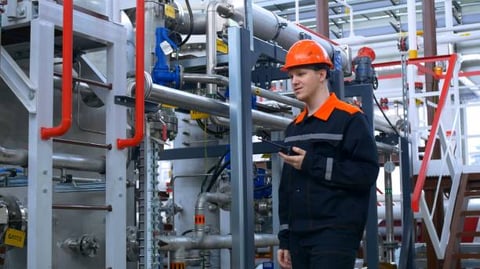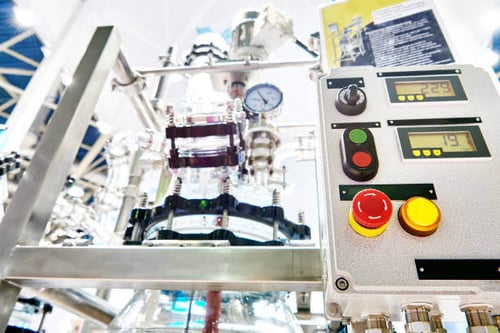Scheduling Smarter: Overcoming Disruptions and Cost Pressures in Chemical Manufacturing
Chemical manufacturing has always been a complex, capital-intensive sector—but the recent global landscape has brought an entirely new level of challenge. From raw material price volatility and geopolitical instability to supply chain bottlenecks and rising energy costs, production schedulers are under immense pressure to do more with less. The question is no longer if disruptions will occur—but when, how severe, and how fast can you adapt.
For production schedulers, success today means being able to rapidly pivot, re-sequence, and reallocate resources without sacrificing quality, compliance, or profitability. This agility is only possible through intelligent planning systems that integrate seamlessly with your core ERP platforms—whether SAP, Oracle, Microsoft, Kinaxis, or Aveva. Advanced Planning and Scheduling (APS) solutions like PlanetTogether are emerging as strategic allies, enabling chemical manufacturers to tackle disruptions while improving cost control and operational resilience.

Understanding the Current Cost and Disruption Landscape
Chemical manufacturers are grappling with a perfect storm:
Fluctuating feedstock and raw material costs: Geopolitical conflicts and supply shortages have made sourcing unpredictable and expensive.
Increased environmental regulations: Sustainability mandates are shifting the industry toward cleaner but often costlier alternatives.
Energy cost surges: High energy usage in chemical processing makes price spikes deeply impactful.
Labor and skills shortages: Staffing gaps cause delays and reduce production line efficiency.
Unpredictable demand: Shifts in customer expectations, especially in pharma, plastics, and agriculture sectors, make static planning obsolete.
This volatile environment makes it clear: traditional scheduling approaches—spreadsheets, manual updates, or legacy systems—are no longer sufficient.
Why Agility is Key for the Modern Production Scheduler
Agility in scheduling means being able to dynamically adjust production in response to real-time changes—whether it's a sudden order change, a delayed shipment, or a machine breakdown. For chemical manufacturers, agility must also factor in:
Batch traceability
Regulatory compliance
Hazardous material handling
Complex interdependencies between units and reactions
Production schedulers need a centralized, real-time platform that can account for all these variables, recommend optimal actions, and execute them quickly. That’s where APS systems like PlanetTogether, integrated with your ERP platform, become invaluable.

The Power of APS and ERP Integration
When PlanetTogether APS is integrated with ERP systems such as SAP, Oracle, Microsoft Dynamics, Kinaxis, or Aveva, it acts as a bridge between high-level planning and detailed shop floor execution. Here’s what that integration enables:
End-to-End Visibility
Schedulers gain a clear view of material availability, work orders, capacity, and labor constraints in one platform. Integration pulls real-time data from the ERP, making plans based on the most accurate and current information.
Scenario Planning for Disruptions
APS allows you to simulate multiple "what-if" scenarios—like a spike in energy costs or a raw material delay—and instantly compare the impact of different scheduling responses.
Automated Rescheduling
Production schedules can be recalibrated with a few clicks to accommodate urgent orders or downtime events—without hours of recalculating Gantt charts or BOM dependencies.
KPI-Driven Optimization
PlanetTogether enables schedulers to align decisions with KPIs like throughput, on-time delivery, and inventory turnover. It factors in cost considerations from ERP systems to minimize financial impact during disruptions.
Synchronized Multi-Site Operations
For multi-plant chemical manufacturers, APS systems help balance loads across locations, manage cross-plant transfers, and ensure consistent output despite disruptions.
Building Efficiency While Tackling Costs
Efficiency isn’t just about producing faster—it’s about doing it smarter. By integrating APS with your ERP, you can unlock efficiencies that directly reduce costs:
Minimize changeovers and clean-in-place cycles by sequencing batches more effectively.
Reduce overtime labor by smoothing out peaks and valleys in production demand.
Optimize energy usage by aligning high-energy processes with off-peak hours.
Lower inventory holding costs by reducing safety stock buffers with more reliable forecasts and schedules.
All of these are critical in a high-stakes chemical environment, where even small inefficiencies can have significant cost implications.
Ensuring Compliance and Traceability Amid Agility
A common concern among chemical manufacturers is that increasing agility may compromise traceability or regulatory compliance. In fact, the opposite is true when APS and ERP systems work together.
PlanetTogether keeps a digital record of all schedule adjustments, batch tracking, and resource utilization. Whether you're dealing with OSHA, REACH, or EPA compliance requirements, integrated scheduling ensures that every change is fully documented and aligned with regulatory protocols.

Integration in Action: SAP, Oracle, Microsoft, Kinaxis, and Aveva
No matter your ERP environment, integration between PlanetTogether and platforms like SAP, Oracle, Microsoft, Kinaxis, or Aveva is designed to be seamless. Examples include:
SAP: Tight coupling with SAP’s PP and MM modules allows real-time material availability checks and capacity planning.
Oracle: Integration with Oracle Cloud SCM ensures that strategic supply chain plans are operationalized effectively.
Microsoft Dynamics: PlanetTogether enhances Dynamics 365 with advanced finite scheduling features that are otherwise limited in ERP.
Kinaxis: For manufacturers using Kinaxis for rapid supply chain planning, PlanetTogether complements it with execution-level agility.
Aveva: Integration supports complex asset-based scheduling, useful in batch and continuous chemical processes.
This interoperability allows schedulers to spend less time troubleshooting data inconsistencies and more time making strategic decisions.
For production schedulers in chemical manufacturing, the stakes have never been higher. But so too are the opportunities—to lead with agility, elevate efficiency, and strategically manage costs in a volatile world.
By integrating PlanetTogether with your ERP system—be it SAP, Oracle, Microsoft, Kinaxis, or Aveva—you can gain the real-time agility and predictive power needed to keep production flowing, customers satisfied, and margins intact.
The future of chemical manufacturing belongs to those who can pivot with precision. With the right tools, you're not just reacting to disruption—you’re scheduling your way through it.
Are you ready to take your manufacturing operations to the next level? Contact us today to learn more about how PlanetTogether can help you achieve your goals and drive success in your industry.
Topics: PlanetTogether Software, Integrating PlanetTogether, Chemical Manufacturing





















LEAVE A COMMENT